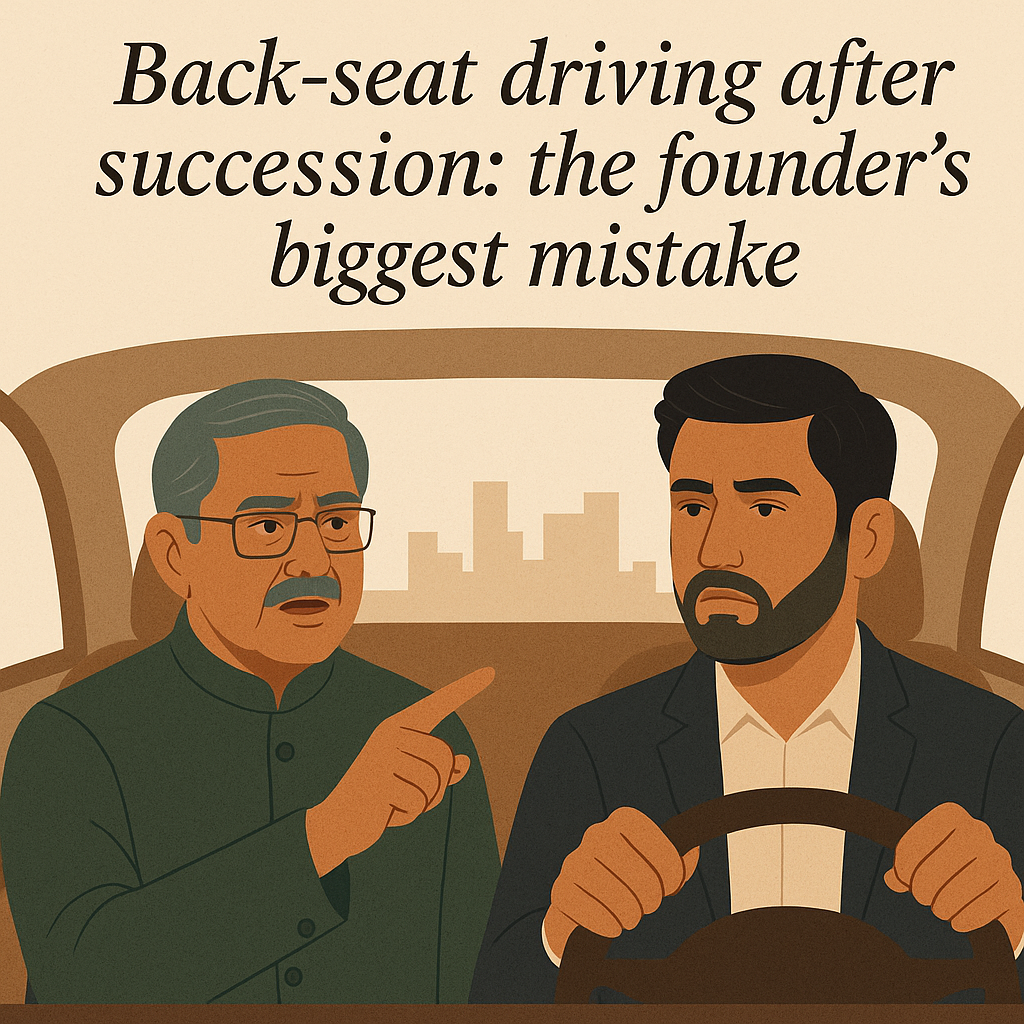


One of the biggest mistakes founders make after handing over the keys to the kingdom is this: they don’t really let go.
They linger. They meddle. They back-seat drive.
Why is this so common?
Because founders are deeply, emotionally tethered to their companies. For decades, their business hasn’t just been a livelihood — it’s been their identity. They’ve spent more time with their “corporate child” than with their biological ones. And they never had the time or headspace to build other interests.
Which brings us to the real succession question — it’s not “When will you hand over control?”
It’s “What will you do after you do?”
Some founders have passions they’ve nurtured for years but never pursued — building a cancer hospital in their mother’s memory, launching a non-profit, writing a book, or circling the globe in 365 days. They transition gracefully because they have something meaningful to run towards.
But many don’t. And some simply can’t retire — they’re wired to “die with their boots on.” And that’s perfectly fine too. But if that’s you, recognise it early. Instead of hovering over the next generation, enable them. Help them set up independent ventures outside the core business. Be their mentor and capital partner — from the sidelines, not the driver’s seat.
History offers a cautionary tale. Queen Elizabeth II ruled the British monarchy until her last day at 96. Her son, Charles, waited so long for the throne that by the time he finally became King, he was 73 — well past his prime, with white hair and a walking stick.
Don’t let that happen in your family business.
Succession delayed — or diluted by interference — can cost the next generation their best years.


Harsh Chopra
Family Business Advisor
Partners4growth.in